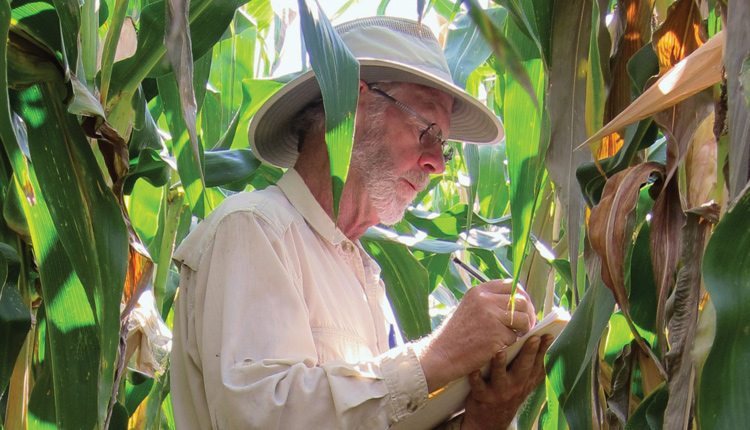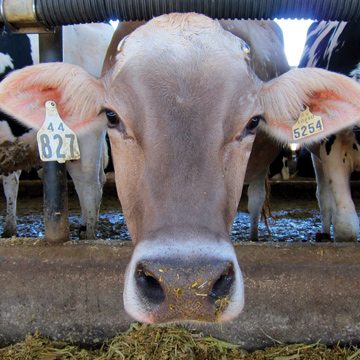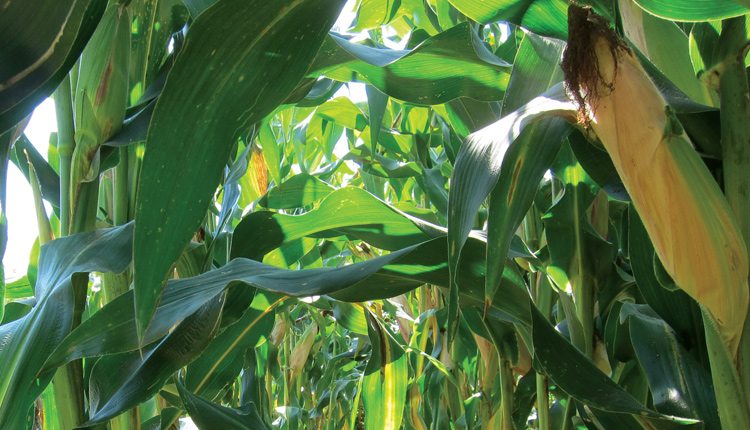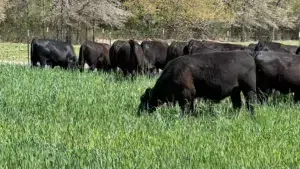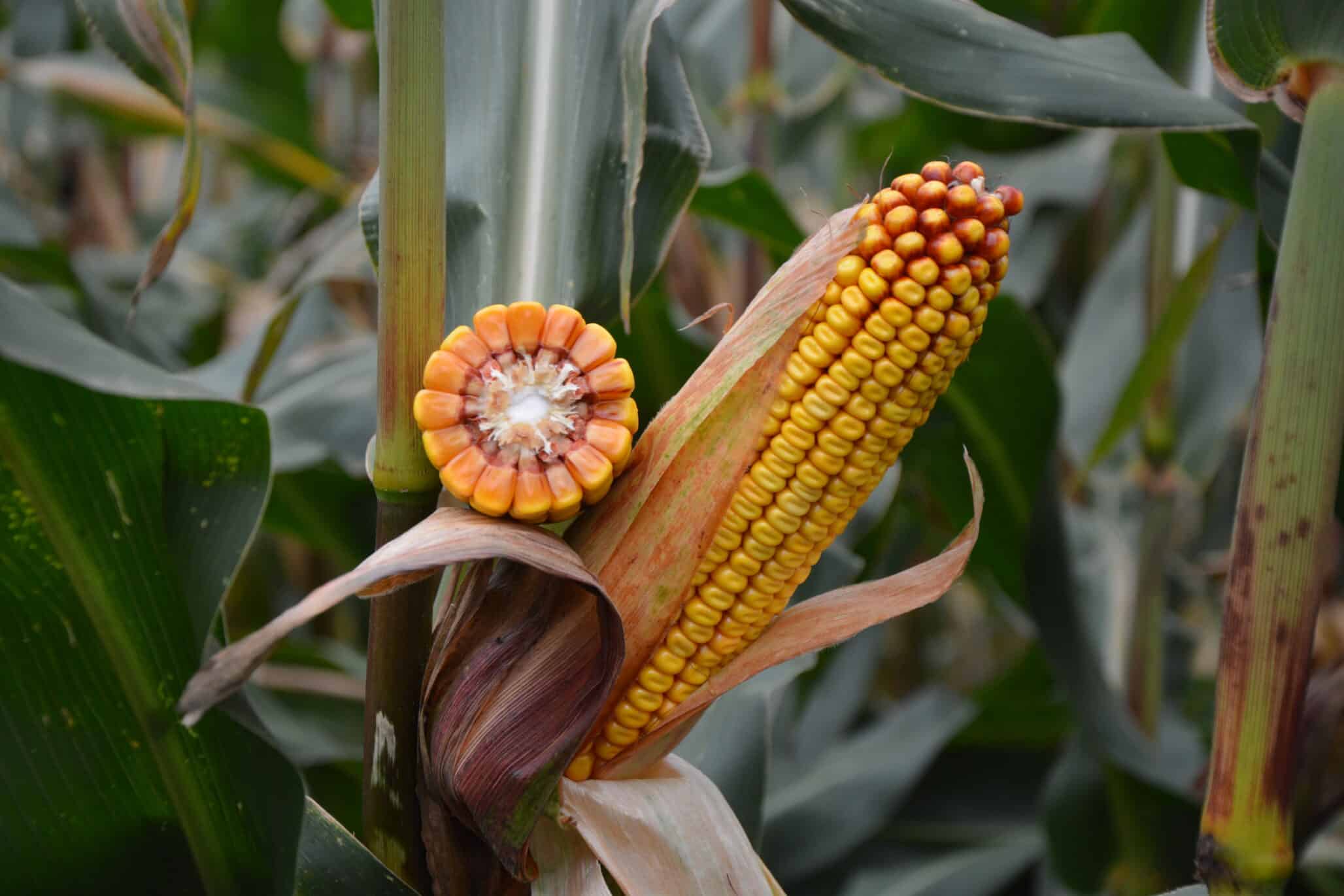Recognized internationally as a true innovator in breeding new varieties of corn, Francis Glenn is this year’s winner of the Canadian Plant Breeding and Genetics Award.
_x000D_
As a kid growing up on a dairy farm in eastern Ontario, Francis Glenn knew he wanted to leave a legacy in agriculture. What he probably didn’t realize back then was how big an impression he would have, not only in Canadian ag circles, but around the world._x000D_
_x000D_
Today, Glenn is recognized as a true visionary in breeding hybrid corn. The 68-year-old developed the world’s first leafy corn varieties three decades ago, and has numerous other breakthroughs in breeding corn varieties for silage under his belt._x000D_
_x000D_
Inspired to pursue corn research work during his undergraduate studies in the late 1960s, Glenn graduated with a doctorate in corn breeding from the University of Guelph in 1974. He then joined Warwick Seed as a corn-breeding assistant and became the director of corn research when Warwick was purchased by Montreal-based Pfizer in 1976._x000D_
_x000D_
Four years after that, Glenn stepped out on his own and founded Glenn Seed Ltd. near Blenheim, Ont., where he continues to breed foundation seed for hybrid corn production. During the course of 35 years, Glenn worked to build a stellar reputation in the seed genetics trade._x000D_
_x000D_
_x000D_
Glenn’s earliest breakthrough was the development of an extra leafy corn, a gene that produced taller plants with more leaves, resulting in an exceptional silage variety. Glenn, whose approach was a departure from the conventional concept of producing corn for grain, started breeding with this “leafy” gene in the mid-1980s._x000D_
_x000D_
He saw a niche that needed to be filled, as well as an excellent market opportunity. “Nobody was developing a product for silage at that time, so I decided to specialize in it,” Glenn says. The extra leafy corn developed produced more tonnage of silage and contained a softer starch that was more readily digested by dairy cows, enhancing its feed value._x000D_
_x000D_
Success in a Niche Market_x000D_
_x000D_
_x000D_
“With the leafy product, we offered a corn silage variety that had been selected for, and met, the requirements of silage producers much better than any grain corn would,” says Glenn, who followed this up with “floury” leafy varieties that have enhanced levels of readily digestible starch._x000D_
_x000D_
Compared to dual purpose corn, Glenn’s leafy silage corn has more leaves above the ear and the ear is actually positioned lower on the stalk. Glenn explains that the below portion of the stalk must be heavily lignified to support the weight of the ear, so lowering the ear increases the digestibility of the fiber content of the plant._x000D_
_x000D_
Glenn collaborates closely with rumen nutrition experts to better understand how corn breeding can improve feed utilization by dairy cows. For example, the smaller size of the processed kernel pieces and lower density of the floury kernels in his leafy floury varieties enable the corn to stay in the rumen longer, and be digested into more microbial protein._x000D_
_x000D_
“Almost all of the rest of corn breeding being done is for grain as the end product,” Glenn says. “The grain trade is all about having kernels that can travel long distances with multiple handlings and arrive intact without any breakage. That’s a product that is really quite indigestible for animals._x000D_
_x000D_
“Our goal is to make a starch that’s more digestible in the rumen of cows because that’s what makes milk. We’ve worked hard to determine what silage producers need for the greatest profitability.”_x000D_
_x000D_
Glenn’s leafy corn lines — both regular and floury — confer numerous benefits to growers, including drought tolerance, disease resistance and a longer window of opportunity for harvesting. They also produce high overall yields with high grain content compared to dual-purpose hybrids developed for grain purposes and also sold for silage._x000D_
_x000D_
Glenn Seed, which Glenn operates with the help of four family members and two full-time employees, develops inbred lines that hybrid companies propagate. It operates one of only two designated silage programs in North America, and is the only one dedicated to improving the digestibility of both fiber and grain parts of the corn plant._x000D_
_x000D_
The company boasts an impressive share of the silage market, with Glenn Seed leafy hybrids now accounting for 20 per cent of the silage acres in North America. In addition, Glenn’s lines are the parents of hybrids sold in France, Italy, Hungary, Serbia, Turkey, Chile and New Zealand._x000D_
_x000D_
In a highly competitive market, Glenn Seed continues to flourish. The company is working to develop varieties that improve digestibility even further, as well as new parental lines for full floury hybrids that will be used for corn silage as well as for producing high moisture corn for livestock feed._x000D_
_x000D_
Glenn’s breeding and business triumphs have been widely recognized from both within and outside the seed industry. In 2006, Glenn was named Entrepreneur of the Year by the Blenheim Chamber of Commerce and he also was singled out by Germination magazine for a “Genius Award” in recognition of his numerous corn breeding achievements. In 2008, he was inducted into Kent Agricultural Hall of Fame._x000D_
_x000D_
This year, he’s been named the winner of Canadian Plant Breeding and Genetics Award, which is given annually by the Canadian Seed Trade Association and Germination._x000D_
_x000D_
Award winners are recognized for their significant contributions to the advancement of Canadian plant agriculture through research in plant breeding and genetics. They have demonstrated excellence in world-class application of the science of plant breeding and genetics; creativity and commitment to achieving technical success; and they have made a significant contribution to the advancement of agricultural productivity in Canada and/or abroad._x000D_
_x000D_
_x000D_
“Dr. Glenn’s nomination highlighted a very strong contribution to agriculture in Canada and throughout North America,” says Patty Townsend, CEO of CSTA, noting that his unique field of breeding corn varieties for silage certainly meets the creativity criteria. “His breeding program has essentially ‘gone against the grain,’ focusing on factors that improve digestibility of all parts of the corn plant.”_x000D_
_x000D_
Dave Baute, President of Maizex Seeds, put Glenn’s name forward for the Canadian Plant Breeding and Genetics Award. “For 35 years, Dr. Francis Glenn has pursued a unique approach to breeding high yielding, silage-specific corn hybrids. It is the only corn program in North America devoted to the improvement of digestibility of both the fiber and grain parts of the corn plant,” Baute wrote in his nomination letter. “The market acceptance for products from his distinctive breeding program is a testament to the value of his work.”_x000D_
_x000D_
Also endorsing Glenn for the Canadian Plant Breeding and Genetics Award, Matt Anderson, manager of DLF Pickseed Canada Inc., commended the breeder for continuing to deliver innovative new products._x000D_
_x000D_
“His work in developing leafy floury hybrids has led to a further increase in readily available digestible starch, resulting in an overall increase in milk production,” Anderson reported. “He also offers many of his new lines with leading edge herbicide-resistant and insect-protected traits. His ability to adapt and compete in the ever-changing corn technology market is remarkable.”_x000D_
_x000D_
Competing as an Independent_x000D_
_x000D_
Glenn believes it’s his independence as a breeder that has allowed his company to successfully tap into the unique market of corn varieties for silage._x000D_
_x000D_
“I think I have had the opportunity to follow my breeding objectives better than breeders who work for large companies,” he says, adding that most plant breeders starting out nowadays lack the necessary resources to go it alone in today’s breeding environment characterized by market consolidation and costly genomic techniques._x000D_
_x000D_
“When I started my own in business in 1980, there was an opportunity to establish myself as an independent breeder,” Glenn says. “There’s very little opportunity to do that today.”_x000D_
_x000D_
In his spare time, Glenn enjoys landscaping and gardening as well as collecting and restoring antique fire engines; he was a volunteer firefighter at one time. However, he still considers plant breeding his favourite hobby as well as his profession.



